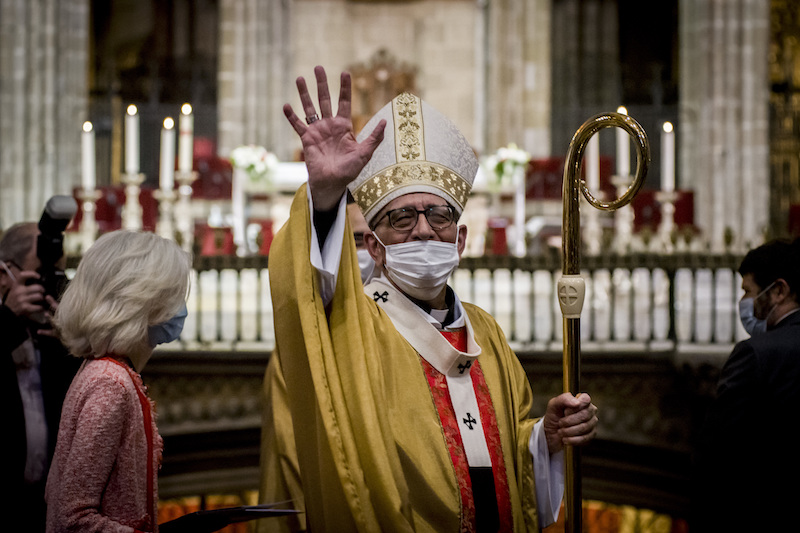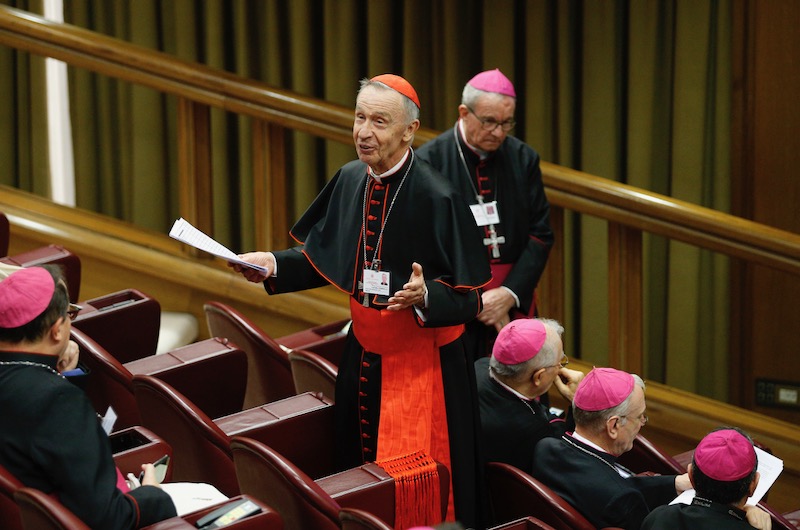The Vatican's doctrine congregation has issued a strongly worded condemnation of euthanasia describing it as an “act of homicide” while ruling that those planning to end their lives should not receive the sacraments.
A new document from the Congregation for the Doctrine of the Faith sets out the Church’s long-held opposition to deliberately ending a person’s life who is suffering but does so in markedly tougher language than in the past.
“Euthanasia, therefore, is an intrinsically evil act, in every situation or circumstance,” the text titled Samaritanus Bonus (The Good Samaritan), states.
“Euthanasia is an act of homicide that no end can justify and that does not tolerate any form of complicity or active or passive collaboration. Those who approve laws of euthanasia and assisted suicide, therefore, become accomplices of a grave sin that others will execute.”
The document, which focuses on “the care of persons in the critical and terminal phases of life”, examines a range of end of life issues including palliative care, children born with an illness which means they are unlikely to live long, and pastoral care for the dying. It was approved by Pope Francis on 25 June 2020.
While the Church does not permit any action that would artificially end lives, official teaching contained in the catechism points that “discontinuing medical procedures that are burdensome, dangerous, extraordinary, or disproportionate to the expected outcome can be legitimate; it is the refusal of “over-zealous” treatment.” The intention, however, must not be to cause death.
Presenting the document at a Vatican press conference this morning Cardinal Luis Ladaria, the Prefect of the Congregation for the Doctrine of the Faith, told reporters the document “seemed appropriate and necessary” given the increasing numbers of countries who have legislated for euthanasia and assisted suicide.
Although euthanasia remains illegal in the UK, there has been pressure to change the law, which would follow a number of European countries. In February, lawmakers in Portugal approved legislation would decriminalise euthanasia and assisted suicide. Several states in the US also permit the practice.
The doctrine body’s text says hospital chaplains should not offer the sacraments, including confession and anointing of the sick, to those who have decided to ask for euthanasia or assisted suicide.
“The confessor must be assured of the presence of the true contrition necessary for the validity of absolution,” it states.
“In this situation, we find ourselves before a person who, whatever their subjective dispositions may be, has decided upon a gravely immoral act and willingly persists in this decision. Such a state involves a manifest absence of the proper disposition for the reception of the Sacraments of Penance, with absolution, and anointing with Viaticum.”
The document stresses the importance of accompaniment for people in the final stages of their life, which it likens to being present with Jesus at the foot of the cross. It stresses that the “hope which Christ communicates to the sick and the suffering is that of his presence, of his true nearness”.
Elsewhere, the text states that those in a vegetative state have “the right to nutrition and hydration, even administered by artificial methods” adding that “the suspension of futile treatments must not involve the withdrawal of therapeutic care”.
On children born with illnesses which are “incompatible with life” the congregation says they should be “accompanied like any other patient until they reach natural death”.
Two years ago the Vatican became involved in the case of Alfie Evans, a terminally ill toddler who died on 28 April 2018 following a legal dispute over his life-support treatment.
“The ethical/juridical concept of ‘the best interest of the child' – when used in the cost-benefit calculations of care – can in no way form the foundation for decisions to shorten life in order to prevent suffering if these decisions envision actions or omissions that are euthanistic by nature or intention,” the text explains.
Professor David Albert Jones, director of the Anscombe Bioethics Centre, said: “A key message of this document is that euthanasia is incompatible with palliative care. It points to the corruption of palliative care by euthanasia, calling it ‘a socially irresponsible threat to many people, including a growing number of vulnerable persons who needed only to be better cared for and comforted but are instead being led to choose euthanasia and suicide’.
He continued: “Whereas authentic palliative care offers both relief of symptoms and emotional solidarity with those who are suffering, euthanasia is effectively an admission of hopelessness. How could this not undermine the relationship of care, especially for someone in a vulnerable and fragile state?
“We see this from the real-life experience of countries where palliative care has been undermined and hospices have no longer been able to reassure patients that their role is to support people to live well in the last phase of their life, not to end that life prematurely. In Belgium, and now also in Canada, healthcare professionals and charitable institutions are effectively being required to facilitate euthanasia and assisted suicide both for people with physical and with mental illnesses, and both for those who are dying and for those who are disabled.”



 Loading ...
Loading ...